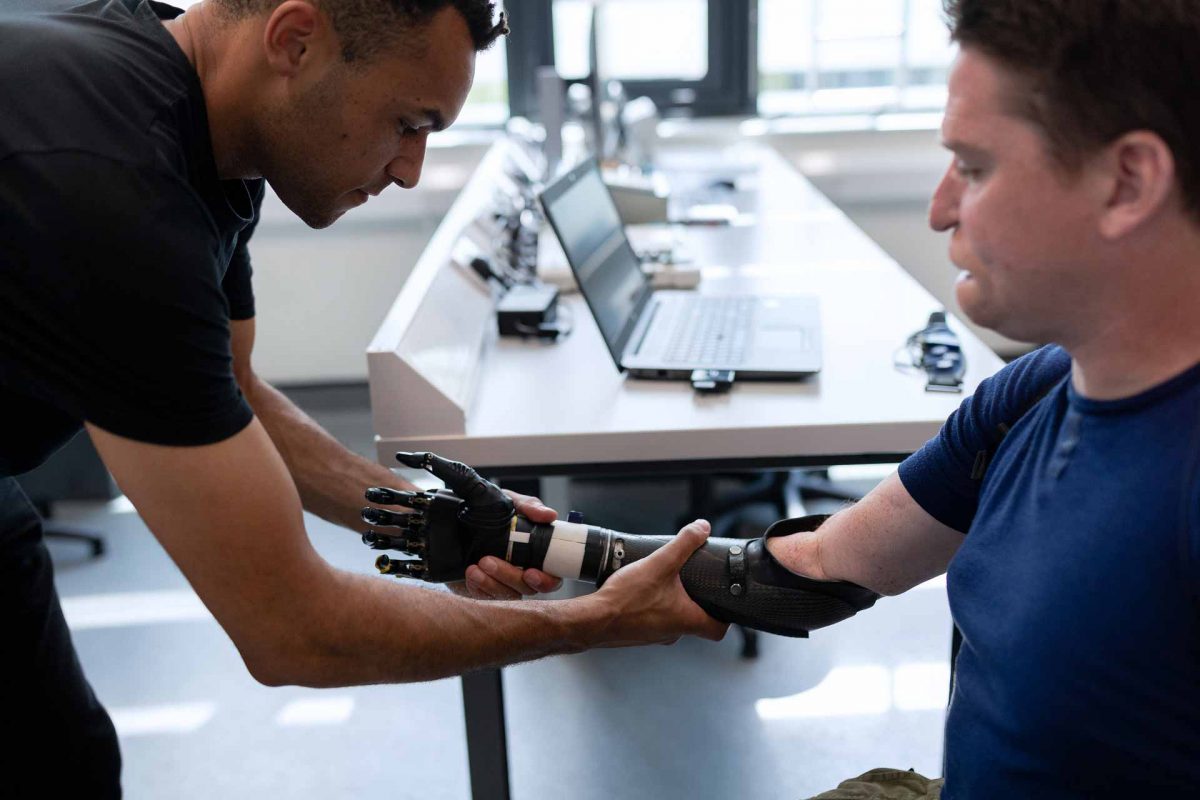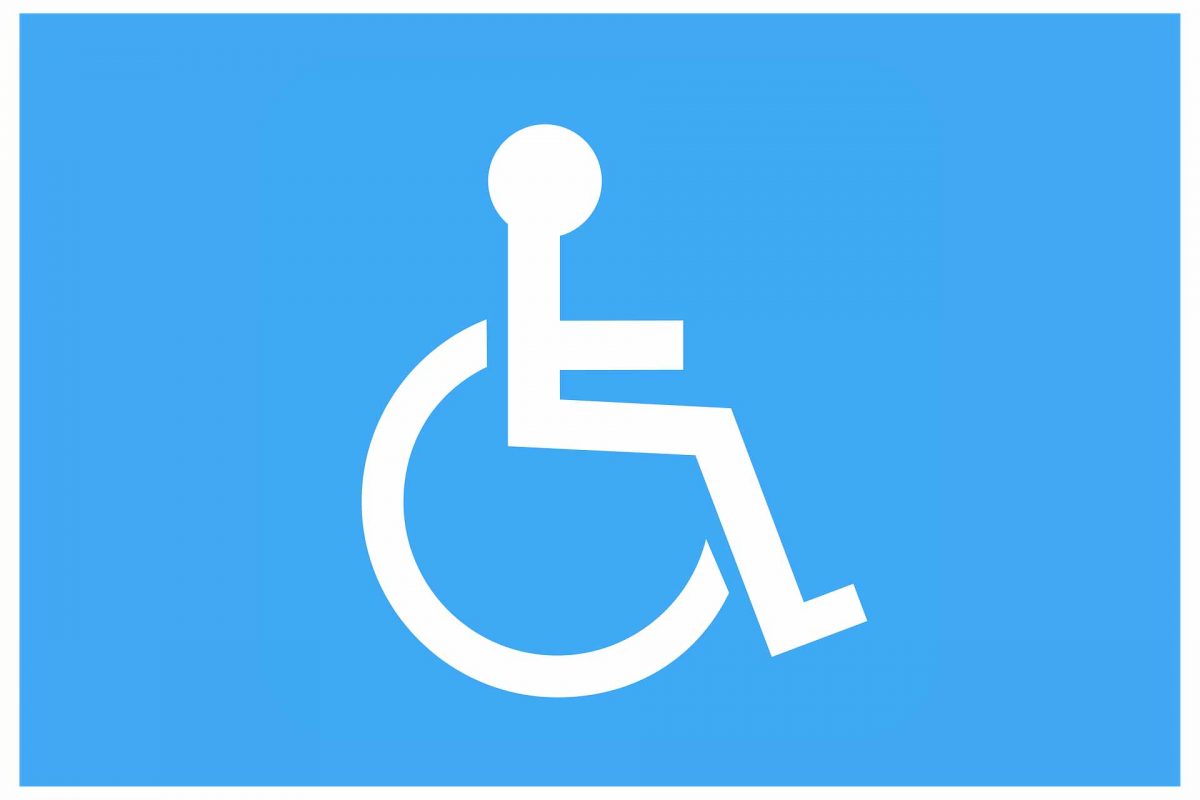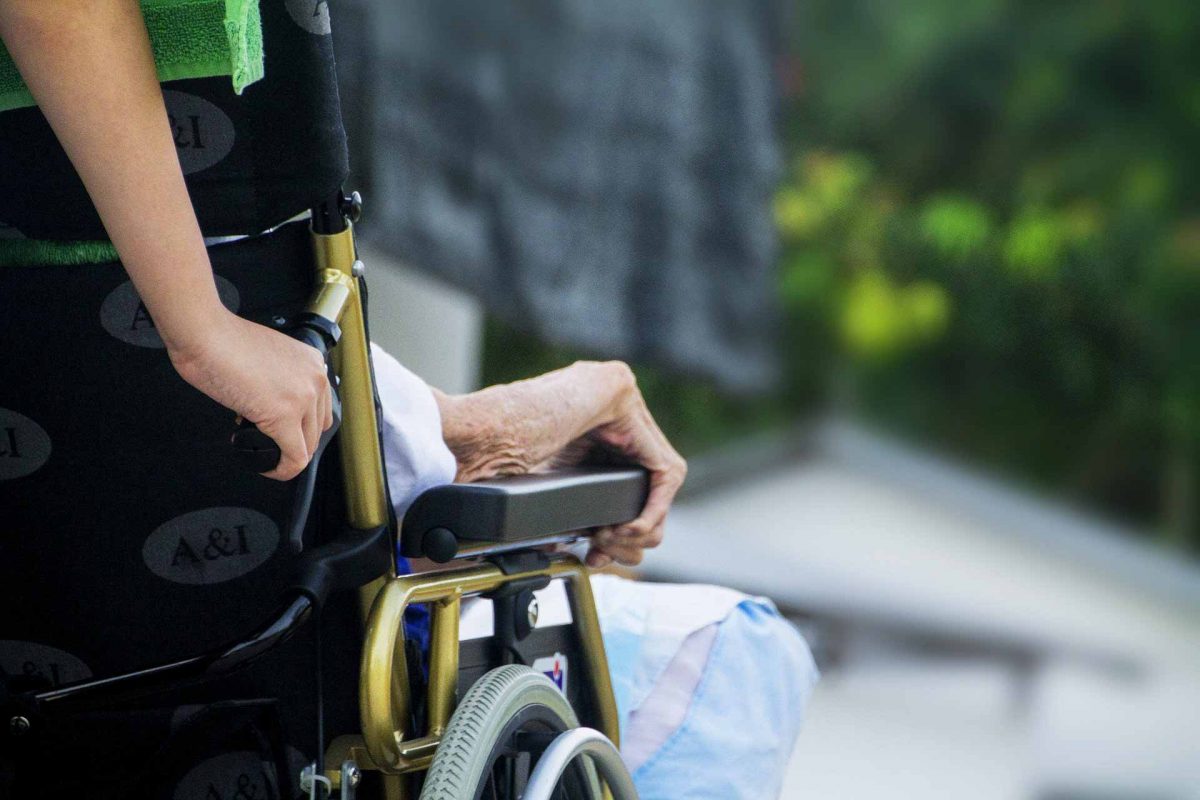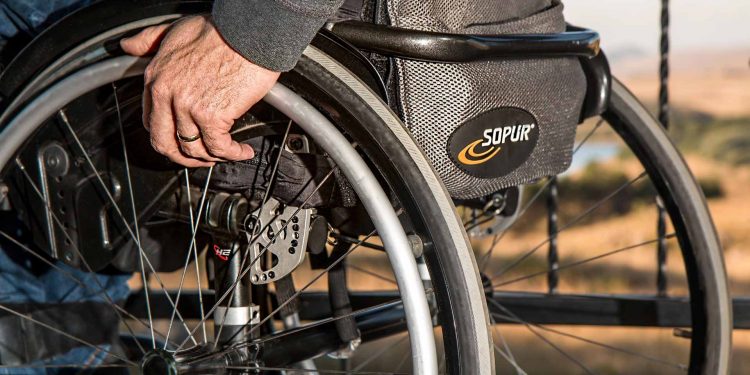Despite all efforts, persons with disabilities are still at a higher risk of poverty and social exclusion than persons without disabilities. European Commission presents an ambitious Strategy for the Rights of Persons with Disabilities 2021-2030 to ensure their full participation in society, on an equal basis with others in the EU and beyond, in line with the Treaty on the Functioning of the European Union and the Charter of Fundamental Rights of the European Union, which establish equality and non-discrimination as cornerstones of EU policies. Persons with disabilities have the right to take part in all areas of life, just like everyone else. Even though the past decades brought progress in access to healthcare, education, employment, recreation activities and participation in political life, many obstacles remain. It is time to scale up European action.
The new strategy builds on its predecessor, the European Disability Strategy 2010-2020, and contributes to the implementation of the European Pillar of Social Rights for which an Action Plan will be adopted by the Commission this week, which serves as a compass for employment and social policies in Europe. The strategy supports implementation by the EU and its Member States of the United Nations Convention on the Rights of Persons with Disabilities at both EU and national levels.
There are 87 million Europeans who have some form of disability within the EU.
“Since its inception, the European project focused on removing barriers, in line with its vision of a Union in Diversity. However, many persons with disabilities continue to face obstacles, for instance when looking for a job or using public transport”, said Commissioner for Equality, Helena Dalli. She added: “People with disabilities should be able to participate equally in all areas of life. Living independently, learning in an inclusive environment, and working under appropriate standards are conditions that we need to ensure to all citizens to enable them to flourish and live life to the fullest.”
The protection of the rights of persons with disabilities has to be at the centre of our efforts, including in our response to the coronavirus. People with disabilities have been among those hit hardest by the COVID-19 crisis. We must strive to ensure that people with disabilities quality of life improves and their rights are guaranteed!
Vera Jourová Vice-President for Values and Transparency
Enhancing equal participation and non-discrimination
The ten-year strategy sets out key initiatives around three main themes:
- EU rights: Persons with disabilities have the same right as other EU citizens to move to another country or to participate in political life. Building on the experience of the pilot project ongoing in eight countries, by the end of 2023 the European Commission will propose a European Disability Card for all EU countries that will facilitate mutual recognition of disability status between Member States, helping disabled people enjoy their right of free movement. The Commission will also work closely with Member States to ensure the participation of persons with disabilities in the electoral process in 2023.
- Independent living and autonomy: Persons with disabilities have the right to live independently and choose where and with whom they want to live. To support independent living and inclusion in the community, the Commission will develop guidance and launch an initiative to improve social services for persons with disabilities.
- Non-discrimination and equal opportunities: The strategy aims to protect persons with disabilities from any form of discrimination and violence. It aims to ensure equal opportunities in and access to justice, education, culture, sport and tourism. Equal access must also be guaranteed to all health services and employment.
Equal access including to education, employment, healthcare, our democratic systems, and justice.
It is impossible to participate in society on an equal basis with others when your environment – physical or virtual – is not accessible. Thanks to a solid EU legal framework (e.g. the European Accessibility Act, Web Accessibility Directive, Passenger rights) access has improved, however, many areas are still not covered by EU rules, and there are differences in the accessibility of buildings, public spaces, and some modes of transport. Therefore, the European Commission will launch a European resource centre ‘AccessibleEU’ in 2022, to build a knowledge base of information and good practices on accessibility across sectors.
Delivering the strategy: close cooperation with EU countries and mainstreaming in internal and external policies
Delivering on the strategy’s ambitions will require a strong commitment from all Member States. EU countries are key actors in the implementation of the UN Convention on the Rights of Persons with Disabilities. The Commission will establish the Disability Platform, bringing together national authorities responsible for implementation of the Convention, organisations of persons with disabilities and the Commission to support implementation of the strategy and to enhance cooperation and exchange on implementing the Convention. The Platform will have a comprehensive online presence and ensure continuity of activities throughout the year. Persons with disabilities will be part of the dialogue and part of the process of implementing the Strategy for the Rights of Persons with Disabilities 2021-2030. The Commission will integrate disability matters into all EU policies and major initiatives.
Because the rights of persons with disabilities do not end at Europe’s borders, the Commission will promote the rights globally. With this strategy, the EU will reinforce its role as an advocate for the rights of persons with disabilities. The EU will use instruments such as technical assistance and financial programmes, support via EU delegation, political dialogues and work in multilateral fora to support partner countries in their endeavours to implement the UN Convention on the Rights of Persons with Disabilities and provide guidance to implement the SDGs in a disability inclusive manner.
Rights of Persons with Disabilities 2021-2030

As announced by President von der Leyen, the Strategy for the Rights of Persons with Disabilities 2021-2030 contributes to building the Union of Equality, together with the LGBTIQ Equality Strategy 2020-2025, the EU Anti-racism Action Plan 2020-2025, the Gender Equality Strategy 2020-2025 and the EU Roma Strategic Framework.
The United Nations Convention on the Rights of Persons with Disabilities (UNCRPD), adopted by the UN in 2006, was a breakthrough for the rights: all Member States are party to it, and it is the first human rights convention concluded also by the EU. Parties to the Convention are required to promote, protect and fulfil the human rights of all persons with disabilities and ensure their equality under the law. With this Strategy, the Commission provides the framework supporting EU and Member States’ actions to implement the UNCRPD.
European Accessibility Act
The European Disability Strategy 2010-2020 paved the way to a barrier-free Europe, for example with directives such as the European Accessibility Act, that requires key products and services such as phones, computers, e-books, banking services and electronic communications to be accessible and usable for persons with a variety of disabilities. EU passenger rights ensure that these persons have access to road, air, rail or sea travel. Through policies for international cooperation, the EU has also led the way globally in promoting the inclusion and full participation of persons with disabilities.
Why does the European Union need a new Strategy for the Rights of Persons with Disabilities?
Despite all efforts, persons with disabilities are still at a higher risk of poverty and social exclusion than persons without disabilities. Access to healthcare, lifelong learning, employment, and leisure remains difficult, participation in political life is limited, and persons with disabilities are still discriminated against. Furthermore, the COVID-19 pandemic has exacerbated existing inequalities.
Over the past ten years, the European Disability Strategy 2010-2020 placed support for persons with disabilities high on the agenda, and it brought improvement in the areas of accessibility, awareness-raising, education and training, social protection and health, among others. In line with the Treaty on the Functioning of the European Union and the Charter of Fundamental Rights of the European Union which establish equality and non-discrimination as cornerstones of EU policies, the strategy was the main instrument for the European Union to implement the United Nations Convention on the Rights of Persons with Disabilities (UNCRPD), to which the European Union as well as all EU Member States are parties.
United Nations Convention on the Rights of Persons with Disabilities (UNCRPD)

To achieve further progress in ensuring the full participation of persons with disabilities, the new and strengthened Strategy for the Rights of Persons with Disabilities 2021-2030 will guide the action of Member States as well as EU institutions, building on the achievements of the previous ten years and offering solutions to the challenges ahead. The new strategy will help to deliver on President von der Leyen’s priorities of building a Union of Equality and delivering on the European Pillar of Social Pillar.
Why is accessibility important for the inclusion of people with disabilities and what is the Commission doing to achieve it?
It is impossible to participate in society on an equal basis with others when your environment – physical or virtual – is not accessible.
Today, thanks to a solid EU legal framework (e.g. the European Accessibility Act, Web Accessibility Directive, Passenger rights) persons with disabilities have better access to transport, buildings, paper and online information, audio-visual media and communications, including electronic ones, as well as to other products and services.
Yet, many areas are still not covered by EU rules, and there are differences in the accessibility of buildings, public spaces, and some modes of transport. Inaccessible information and services can lead to isolation for persons with disabilities. Therefore, the European Commission will launch a European resource centre ‘AccessibleEU’ in 2022, to build a knowledge base of information and good practices on accessibility across sectors.
How will the strategy help persons with disabilities enjoy their EU rights?
Persons with disabilities have the same right as others to move to another EU country or participate in political life. However, when moving to another EU country, the disability status of these persons is not always recognised, causing problems regarding access to benefits or services. Building on the experience gained with the ongoing EU Disability Card pilot project in eight countries and with the European Parking Card, the European Commission will propose creating a European Disability Card with a view to facilitating mutual recognition of disability status across all 27 Member States.
UN Convention
Full political participation as required by the UN Convention means that persons with disabilities can vote and stand as a candidate in political elections on an equal basis with others. In practice, many persons with disabilities face difficulties in exercising their rights due to limited accessibility (including a lack of information and communication in sign language), or due to restrictions in their legal capacity. As announced in the 2020 Citizenship Report, the Commission will work with Member States, including through dedicated discussions in the European Cooperation Network on Elections and the European Parliament, to guarantee political rights of persons with disabilities on equal basis with others. In 2023, the European Commission will issue guidance on the participation of persons with disabilities in the electoral process. It will also support inclusive democratic participation, including for persons with a disability, through the new Citizenship, Equalities, Rights and Values programme.
How will the strategy improve quality of life and autonomy?

The European Commission will issue guidance to Member States on independent living and inclusion in the community by 2023. In 2024, the Commission will work with Member States to introduce a European quality framework for social services of excellence.
Only 50% of persons with disabilities has a job, compared to 75% of persons without disabilities. The Commission calls on Member States to unlock the potential of these persons and improve their position on the labour market. The Commission will seek cooperation with organisation representing these persons to develop a package for better labour market outcomes of persons with disabilities. Furthermore, the strategy will put forward actions to improve social protection for persons with disabilities and to support (potential) social entrepreneurs with disabilities.
How will the strategy enhance equal participation and non-discrimination?
Persons with disabilities have the right to equal opportunities and to be free from discrimination and violence. Yet, 52% of persons with disabilities feel discriminated against and persons with disabilities have a higher risk of becoming victims of violence and abuse in their home environment and in institutions. 20% of young people leave school early, compared to 10% of those without disabilities.
The strategy aims to protect persons with disabilities from any form of discrimination and violence. It will include actions on access to justice and healthcare and strengthening the participation of persons with disabilities in arts and culture, recreation, leisure, sport and tourism. The European Commission calls on Member States to establish inclusive schools setting that can become a reference in inclusive and innovative teaching and learning across the EU. The Commission will also issue guidance on access to healthcare based on inclusive, accessible, person-centred healthcare, and free and informed consent.
How will the strategy enhance the rights of persons with disabilities around the world?
According to the World report on disability, about 15% of the world’s population lives with some form of disability. The European Commission promotes the rights of persons with disabilities in its international policies. In 2021, the Commission will update its Toolbox on the “Rights Based Approach, encompassing all human rights for EU development cooperation” to address all inequalities, including discrimination against persons with disabilities, in external actions.
The EU will develop a strategic dialogue with other State Parties and signatories of the UN Convention, as well as with other regional organisations. Under this strategy, structured dialogues will be organised and cooperation on accessibility and employment will be enhanced.















